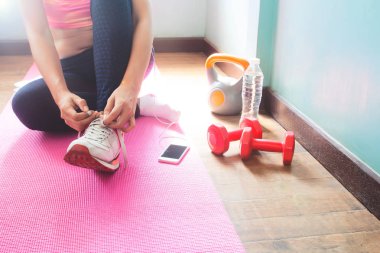
Self Care Practices Can Enhance Your Fitness Routine (3 Helpful Practices)
Self-care practices can enhance your fitness routine by providing the balance and recovery your body needs to perform at its best. Incorporating self-care into your fitness routine isn’t just about pampering—it’s about unlocking your full potential. By nurturing your body and mind with the right practices, you can enhance performance, boost recovery, and keep motivation high. Whether it’s through mindful stretching, nourishing your body with the right fuel, or taking moments to mentally recharge, self-care allows you to train smarter, not harder. It’s time to treat yourself as the athlete you are, and make your wellness routine as strong as your workouts.

Self Care Practices Can Enhance Your Fitness Routine
Self-care practices can significantly boost your fitness routine by promoting recovery, reducing stress, and improving overall performance. Incorporating mindfulness, proper hydration, balanced nutrition, and sleep can optimize your workouts. These strategies help prevent burnout, enhance motivation, and lead to sustainable progress. Self-care also nurtures your mental health, which is crucial for maintaining long-term fitness goals.
Prioritize Sleep for Muscle Recovery and Performance
Sleep is essential for muscle recovery, cognitive function, and physical performance. During deep sleep, the body repairs muscle tissue and replenishes energy stores. Without enough rest, your fitness routine can suffer from fatigue, poor focus, and increased injury risk. Incorporating 7-9 hours of quality sleep into your daily regimen helps enhance endurance, strength, and coordination.
Hydration: Fueling Your Workouts and Recovery
Proper hydration is critical for maintaining stamina, reducing muscle cramps, and supporting recovery. Drinking water before, during, and after exercise ensures your body functions optimally, allowing muscles to contract and relax effectively. Dehydration can lead to dizziness, fatigue, and diminished performance.
Mindfulness and Mental Wellness for Workout Consistency
Mindfulness practices, such as meditation and deep breathing, help improve focus and reduce stress, making it easier to stay consistent with your fitness routine. Mental health and physical fitness are deeply intertwined, and practicing mindfulness can boost motivation, improve workout enjoyment, and prevent burnout.
Balanced Nutrition: Supporting Energy and Muscle Growth
Eating a well-balanced diet rich in proteins, carbohydrates, and healthy fats fuels your workouts and aids in muscle repair. Nutrient-dense meals provide the energy required to sustain longer, more intense workouts, and support faster recovery.
Physical Self-Care Practices
Sleep
Physical self-care, particularly focusing on sleep, plays a vital role in overall well-being. Adequate sleep is crucial for muscle recovery, energy restoration, and mental clarity. During sleep, the body repairs tissue, synthesizes proteins, and releases growth hormones—all essential for muscle recovery and strength building. In contrast, poor sleep can lead to fatigue, reduced cognitive function, and an increased risk of injury due to impaired performance.
Optimizing sleep hygiene can significantly improve sleep quality. Adopting a regular sleep schedule helps regulate your body’s internal clock. Creating a restful environment with a dark room, cool temperature, and minimal noise can also promote better sleep. Additionally, avoiding screens and stimulants such as caffeine before bed ensures that your mind and body are primed for rest, leading to more restorative sleep.
Nutrition and Hydration
Physical self-care practices, particularly focusing on nutrition and hydration, are essential for maintaining optimal health and performance during workouts. A balanced diet fuels the body, providing the necessary energy and nutrients to sustain physical activity. The macronutrient breakdown is key: carbohydrates provide energy, proteins aid in muscle repair and recovery, and healthy fats support endurance and cell function.
Pre-workout meals rich in carbs and moderate in protein can boost performance, while post-workout nutrition with protein and carbs helps speed recovery. Hydration is equally important, as water regulates body temperature, lubricates joints, and aids in muscle function. Proper electrolyte balance, especially during intense or prolonged workouts, ensures that sodium, potassium, and other key minerals are replenished to avoid cramps and fatigue. Dehydration can quickly hinder performance, leading to dizziness, decreased endurance, and slower recovery, highlighting the importance of maintaining fluid intake before, during, and after exercise.
Stretching and Flexibility
Physical self-care practices, particularly in the realm of stretching and flexibility, are essential for maintaining overall health and preventing injury. Incorporating dynamic stretching before workouts helps prepare muscles and joints for movement by increasing blood flow and improving range of motion. This not only enhances performance but also reduces the risk of injury during exercise.
After a workout, static stretching is important for recovery, as it helps to lengthen muscles, reduce tension, and prevent tightness. Additionally, engaging in regular yoga or mobility routines further enhances flexibility, promotes better posture, and keeps the body limber, contributing to long-term physical well-being.

Active Recovery
Physical self-care practices, particularly in the realm of active recovery, play a crucial role in maintaining overall fitness and preventing injury. Engaging in light movement, such as walking, swimming, or cycling, between intense workout sessions promotes blood flow, helps flush out metabolic waste, and reduces muscle stiffness.
Incorporating foam rolling, massage, or self-myofascial release techniques can further enhance recovery by easing muscle tension, improving flexibility, and alleviating soreness. Equally important are rest days, which allow muscles the time they need to repair and grow stronger, reducing the risk of overtraining and ensuring long-term progress in physical performance.
Proper Warm-Up and Cool-Down
Physical self-care practices, like proper warm-up and cool-down routines, are essential for maintaining overall fitness and preventing injury. A warm-up session, typically involving light aerobic activities and dynamic stretches, prepares the muscles and joints for more intense movements by increasing blood flow and flexibility. This reduces the risk of strains and other injuries during high-intensity exercise.
Cooling down, on the other hand, gradually brings the heart rate down to its resting state and helps the muscles recover. Gentle stretching during the cool-down phase can reduce muscle soreness and stiffness, promoting better mobility and faster recovery. Incorporating these practices consistently enhances performance and reduces the likelihood of post-exercise discomfort.
Mental and Emotional Self-Care Practices
Managing Stress
Mental and emotional self-care practices play a crucial role in managing stress, which in turn impacts physical health and workouts. Techniques like meditation, deep breathing, and mindfulness help reduce stress by calming the mind, lowering heart rate, and balancing the body’s stress response.
These practices are particularly effective in regulating cortisol, the primary stress hormone. Elevated cortisol levels, triggered by chronic stress, can hinder weight loss, slow muscle building, and drain energy, negatively affecting workout performance. By managing stress through self-care, individuals can maintain healthier cortisol levels, leading to more effective exercise routines and improved overall well-being.
Goal Setting and Mindset
Mental and emotional self-care is crucial for maintaining a healthy relationship with fitness goals. One effective approach is setting SMART goals, which are Specific, Measurable, Achievable, Relevant, and Time-bound. These goals provide clear direction and make progress easier to track, enhancing motivation.
Additionally, cultivating a growth mindset—believing that abilities and fitness levels can improve through effort—helps maintain motivation, especially when challenges arise. Practicing self-compassion is also key, as it allows individuals to handle setbacks without self-criticism, recognizing that mistakes and obstacles are part of the journey toward growth and success. Embracing these practices fosters resilience and long-term commitment.
Mental Recovery
Mental and emotional self-care practices are essential for maintaining balance and preventing burnout, especially when following a fitness routine. Mental recovery, such as taking intentional breaks, is crucial for avoiding workout fatigue and overexertion. Just as our muscles need rest, our minds benefit from moments of relaxation to recharge and stay sharp.
Engaging in mental self-care can enhance focus and discipline in fitness routines. Techniques like journaling allow us to track progress, reflect on goals, and identify areas of improvement. Visualization can mentally prepare us for workouts, boosting motivation and confidence by imagining success. These practices help us stay consistent and maintain a healthy mindset on our fitness journey.

Social and Environmental Self-Care Practices
Support Networks
Social and environmental self-care practices play a crucial role in maintaining overall well-being, especially in fitness. Engaging with support networks like workout buddies, fitness communities, or coaches fosters motivation and consistency. These connections not only make exercise more enjoyable but also provide emotional support and a sense of accountability.
When friends, family, or fitness groups encourage and participate in physical activities together, individuals are more likely to stay committed to their goals. This social interaction enhances mental health, reduces feelings of isolation, and promotes a positive environment where everyone is empowered to achieve their fitness objectives.
Creating a Positive Workout Environment
Social and environmental self-care practices play a key role in creating a positive workout environment that fosters motivation and reduces stress. Choosing an inspiring and supportive space, whether it’s a home gym, an outdoor setting, or a commercial gym, can significantly influence workout consistency and enjoyment.
The ambiance of the space matters too—uplifting music, appropriate lighting, and even the selection of tools like ergonomic equipment or cozy workout mats can enhance the overall experience. Integrating social support, such as working out with a friend or joining a group class, can also provide a sense of community, making fitness feel more engaging and less like a chore. This combination of environmental factors and social interaction can help create a sustainable and fulfilling fitness routine.

Self-Care Tools and Resources
Fitness Trackers and Apps
Self-care tools and resources, such as fitness trackers and apps, offer invaluable support for maintaining a healthy lifestyle. These tools allow users to monitor their physical activity, sleep patterns, and stress levels, providing real-time feedback to help make adjustments for better well-being. Fitness trackers can encourage regular movement and set personalized goals, while sleep tracking features help identify patterns that may affect energy levels.
Mindfulness apps promote stress management through guided meditations and breathing exercises, while nutrition apps support healthy eating habits by tracking food intake and offering meal suggestions. Popular recommendations include apps like MyFitnessPal for nutrition, Calm or Headspace for mindfulness, and Fitbit or Apple Health for overall fitness tracking. These tools can be essential for staying motivated and organized on a wellness journey.
Wellness Programs and Professional Support
Self-care tools and resources are essential for promoting overall well-being, especially during challenging times. Engaging in wellness programs such as massage therapy, physical therapy, and mental health counseling can provide holistic support, addressing both physical and emotional needs. These services not only enhance relaxation and recovery but also contribute to a better understanding of personal health.
Additionally, working with certified trainers or nutritionists allows individuals to tailor fitness and nutrition plans to their specific goals, ensuring a more effective and sustainable approach to health. Together, these resources empower individuals to take charge of their wellness journey, fostering resilience and balance in their lives.
Journaling and Reflection
Self-care tools and resources play a vital role in promoting overall well-being, and journaling is a powerful method for self-reflection. By regularly documenting fitness progress, individuals can gain insights into their mental and emotional states, identifying patterns and areas for self-improvement.
A fitness journal not only serves as a record of daily self-care habits and workout achievements but also encourages mindfulness, helping users to celebrate successes and address challenges. This practice fosters a deeper connection with oneself, enhancing motivation and accountability while providing a safe space for personal growth and emotional expression.
Balancing Self-Care with Consistency in Fitness
Prioritizing Recovery
Balancing self-care with consistency in fitness is essential for long-term success and well-being. While pushing through challenging workouts can be motivating, it’s crucial to prioritize recovery to prevent burnout and injury. This means incorporating rest days and lighter activities into your routine to allow your body to heal and recharge.
Signs of overtraining, such as persistent fatigue, decreased performance, and increased irritability, are important signals that should not be ignored. Listening to your body and adjusting your training plan accordingly ensures that you maintain a sustainable approach to fitness, allowing you to enjoy the benefits of your hard work without sacrificing your overall health.
Sustainability and Longevity
Balancing self-care with consistency in fitness is essential for achieving sustainability and longevity in one’s health journey. By incorporating self-care practices into daily routines—such as mindfulness, adequate rest, and nutrition—individuals can create a supportive environment that fosters long-term adherence to fitness goals. Recognizing that fitness is not just a destination but a continuous journey allows for a more compassionate approach to personal progress, where setbacks are viewed as opportunities for growth rather than failures. This holistic perspective not only enhances physical performance but also nurtures mental well-being, ensuring that fitness becomes a fulfilling part of life rather than a fleeting endeavor. Embracing this balance helps to cultivate resilience, making it easier to maintain motivation and enjoy the process.
Self-Care and Special Considerations
Self-Care During Menopause
Self-care during menopause is essential as it addresses the significant changes in metabolism, hormone balance, and muscle mass that many women experience. Tailoring fitness routines to accommodate hormonal fluctuations can enhance overall well-being and alleviate symptoms such as mood swings and fatigue.
Incorporating strength training is particularly important, as it helps maintain muscle mass, boosts metabolism, and supports bone health. Additionally, a balanced nutrition plan rich in calcium, vitamin D, and phytoestrogens can further aid in managing menopause-related symptoms. By focusing on these key areas, women can create a personalized self-care strategy that promotes resilience and vitality during this transitional phase.
Self-Care for Different Fitness Levels
Self-care is essential for individuals at all fitness levels, tailored to meet their unique needs. For beginners, it’s crucial to gradually integrate self-care practices, such as proper warm-ups, cool-downs, and rest days, to prevent burnout and injuries. This foundational approach helps build resilience and encourages a sustainable fitness journey.
On the other hand, advanced athletes should focus on fine-tuning their self-care routines to enhance performance. This includes prioritizing recovery techniques, optimizing sleep quality, and refining nutrition to support intense training regimens. By recognizing and addressing their specific self-care needs, both beginners and advanced athletes can cultivate a balanced approach to fitness that promotes longevity and well-being.
FAQs: How Self-Care Practices Can Enhance Your Fitness Routine
Q1. What is self-care, and why is it important for my fitness routine?
A. Self-care involves activities that promote mental, emotional, and physical well-being. In a fitness routine, self-care ensures you stay motivated, reduce injury risk, and improve recovery. Incorporating practices like proper sleep, hydration, and stress management enhances overall performance and consistency.
Q2. How does proper sleep improve my workout results?
A. Sleep is when your body recovers and repairs muscles. Lack of sleep can reduce energy, slow down muscle recovery, and increase the risk of injury. Getting 7-9 hours of quality sleep helps you feel refreshed, improves focus during workouts, and supports muscle growth.
Q3. Why is hydration considered a form of self-care for fitness?
A. Staying hydrated helps regulate body temperature, maintain joint lubrication, and improve muscle performance. Dehydration can lead to fatigue, cramps, and poor workout outcomes. Drinking water before, during, and after exercise boosts endurance and recovery.
Q4. Can mental self-care impact my fitness routine?
A. Absolutely! Mental self-care practices, such as mindfulness, meditation, or deep breathing, reduce stress and improve focus. A clear mind can lead to better workouts by helping you stay present, motivated, and aligned with your fitness goals.
Q5. How do relaxation techniques like stretching or yoga enhance fitness?
A. Stretching and yoga increase flexibility, improve muscle recovery, and help prevent injuries. They also promote relaxation and mental clarity, making them excellent post-workout self-care practices that reduce muscle tension and soreness.
Q6. What role does nutrition play in self-care for fitness?
A. Proper nutrition fuels your body, enhances workout performance, and speeds up recovery. Eating balanced meals rich in protein, healthy fats, and complex carbohydrates before and after workouts helps build muscle, replenish energy, and reduce fatigue.
Q7. Why is it important to take rest days as part of my fitness routine?
A. Rest days are crucial for muscle recovery and preventing burnout. Overtraining can lead to injury and fatigue. By giving your body time to repair itself, you enhance strength and endurance while reducing the risk of long-term injuries.
Q8. How can journaling support my fitness journey?
A. Journaling helps track progress, set goals, and reflect on emotional and physical well-being. Writing about your fitness experiences can boost motivation, celebrate milestones, and provide insight into areas where improvement is needed.
Q9. Is it okay to modify my workout based on how I feel?
A. Yes! Listening to your body is a key self-care practice. If you’re feeling tired, sore, or mentally drained, it’s okay to modify your routine by opting for lighter exercises or rest. Adjusting based on how you feel ensures sustainability and long-term success.
Q10. How do mindfulness and body awareness help prevent injury?
A. Practicing mindfulness helps you focus on your movements during workouts, reducing the risk of improper form or overexertion. By being more aware of your body, you can identify areas of tension or discomfort early and adjust your routine to avoid injury.
Q11. What are some self-care rituals I can do post-workout?
A. Post-workout self-care can include stretching, foam rolling, taking a warm bath, and practicing deep breathing. These rituals help relax muscles, reduce soreness, and promote faster recovery, making you ready for your next workout.
Conclusion
Incorporating self-care practices into your fitness routine can significantly enhance your overall well-being and performance. By prioritizing activities like proper sleep, balanced nutrition, mindfulness, and recovery techniques such as stretching or yoga, you create a holistic approach to fitness that supports both physical and mental health. These practices not only help prevent injury and burnout but also improve consistency, motivation, and results. Ultimately, self-care empowers you to maintain a sustainable, enjoyable, and effective fitness routine, allowing you to thrive both in and out of the gym.